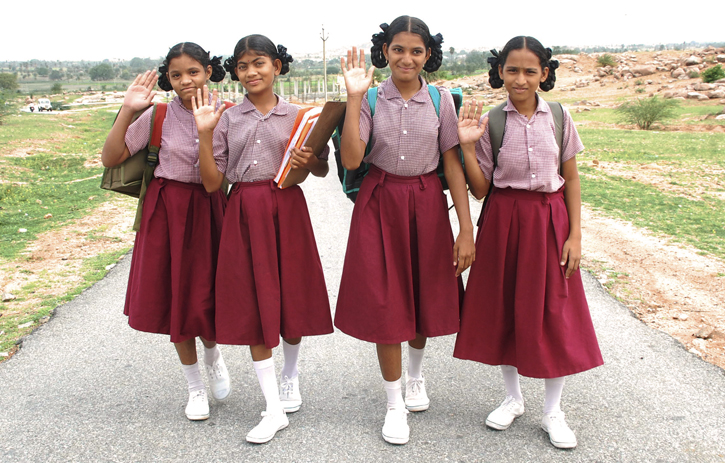Child Labor in India
Human Rights Efforts in India
Throughout the world, Monsanto has implemented policies and procedures that allow us to conduct our business in an ethical and responsible manner that supports and respects human rights. Not only do we hold ourselves to a high standard of excellence, but we also require business partners to act consistently with our expectations.
Monsanto’s business in India presents some special challenges. There, the agriculture system is comprised of many smallholder farms. To produce the seed that Monsanto needs for its commercial operations, Monsanto hires up to 50,000 smallholder farmers in six states where local languages vary.
CHILD LABOR:
Child labor is a challenge in India, where historic practices, cultural expectations and, at times, a lack of available schools for children in rural areas contributes to the use of child labor on farms. In 2005, Monsanto acquired Emergent Genetics in India, which resulted in our focus on child labor and the development of a program to monitor and address the issue of children working in our business partners’ fields, starting with hybrid cottonseed production, and subsequently expanding to our other crops. By 2011, child labor was less than one-half of one percent of the work force in our business partners’ fields.
Our efforts to improve human rights practices in India focus on tactics that can address problems with communication and child labor. Here are some of the actions we’ve taken:
- Inclusion of clauses in our seed production contracts which prohibit the use of child labor in the fields.
- Localized media and communication campaigns to communicate “no child labor.” These methods can change from year-to-year, but have included messages on foundation seed bags, post cards, banners, calendars, stickers, and pamphlets.
- Grower education meetings in all of Monsanto’s production areas. The farmers learn about agronomic practices and agree not to hire children as part of their labor force.
- Constructed a robust monitoring system to identify any children working in fields, and removed them from the labor force.
- Developed a social worker program to counsel parents and help them make the decision to send their children to school.
- Created a “model village” incentive system to provide support to schools in villages where Monsanto has found no children working during the monitoring process.
Monsanto has also provided financial support for social responsibility programs in villages. Some of the funding helps accelerated schooling at special “bridge” schools for children who were found working in the fields, mid-day meal programs that provide an incentive for children to go to school, teacher skill enhancement training, and infrastructure improvements to bathrooms, desks and benches, and computers. Funding has also contributed to drinking water purification plants to help reduce the risk and incidence of disease.
Field safety is another area in which Monsanto is making progress improving. Our field production representatives are trained to identify and address common safety issues, such as open wells, poor electrical connections, and trip hazards. Our representatives work with farmers to fix problems and prevent injuries, and are able to supply personal protective equipment for the farmers’ use in the field.
The actions Monsanto has taken in India are part of a global effort to hold ourselves accountable and demonstrate our commitment to human rights. Monsanto’s Human Rights Policy is consistent with the "Protect, Respect and Remedy" framework introduced in 2011 in the U.N. Guiding Principles for Business and Human Rights.











